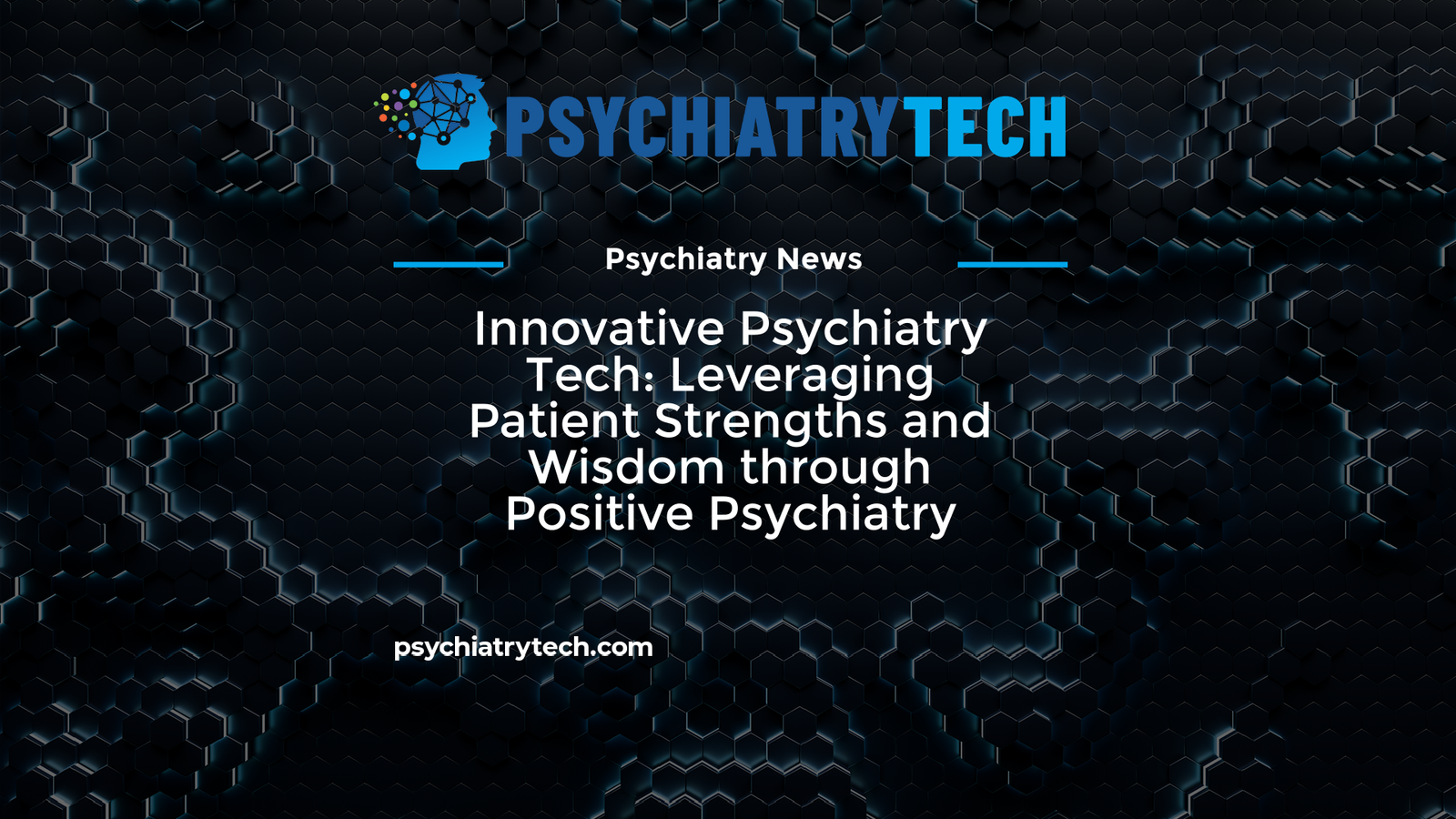Innovative Psychiatry Tech: Leveraging Patient Strengths and Wisdom through Positive Psychiatry
The Rise of Positive Psychiatry
Psychiatry is evolving, and so is its approach to mental health. Innovations in technology have made it possible to leverage patient strengths and wisdom through Positive Psychiatry. In this blog post, we will explore the latest advancements, tools, and trends shaping the field of psychiatry technology.

Discover The World's MOST COMPREHENSIVE Mental Health Assessment Platform
Efficiently assess your patients for 80+ possible conditions with a single dynamic, intuitive mental health assessment. As low as $12 per patient per year.
Cutting-edge Tools for Psychiatry
For decades, psychiatry has focused on diagnosing and treating mental disorders. The approach was centered around negative symptoms, weaknesses, and limitations. However, this approach is changing. The rise of Positive Psychiatry is shifting the focus towards mental wellness, resilience, and strengths.
Positive Psychiatry emphasizes the promotion of positive emotions, cognitions, behaviors, and relationships. By leveraging personal strengths and positive resources, patients can improve their mental health and overall quality of life. As the field of psychiatry shifts towards Positive Psychiatry, technology is playing a vital role in this transformation.
Cutting-edge Tools for Psychiatry
Technology is revolutionizing the field of psychiatry. New tools and innovations are emerging every day, providing clinicians and patients with powerful resources to address mental health challenges. Here are some cutting-edge tools that are transforming psychiatry.
Mobile Apps
Mobile apps are transforming the way patients access mental health services. These apps provide a range of features, including mental health assessments, mindfulness exercises, cognitive-behavioral therapy, and virtual support groups. Mobile apps have made mental health services more accessible, affordable, and convenient for patients. Clinicians can also use mobile apps to monitor patient progress and deliver personalized treatment plans.
Telepsychiatry
Telepsychiatry is the delivery of mental health services through videoconferencing technology. Telepsychiatry has made it possible for patients in remote or underserved areas to access mental health services. Additionally, telepsychiatry has made mental health services more accessible for patients with physical disabilities, transportation challenges, or mobility issues. The COVID-19 pandemic has accelerated the adoption of telepsychiatry, making it a crucial tool for providing mental health services during this challenging time.
Neurofeedback
Neurofeedback is a type of biofeedback that monitors brain waves and provides real-time feedback to improve brain function. Neurofeedback is a valuable tool for treating various mental health conditions, including attention deficit hyperactivity disorder, depression, anxiety, and post-traumatic stress disorder. Neurofeedback can help patients learn to self-regulate their brain waves, leading to improved mood, cognitive function, and overall mental well-being.
Trends Shaping Psychiatry Technology
The field of psychiatry technology is constantly evolving. Here are some of the trends shaping the future of psychiatry technology.
Artificial Intelligence
Artificial Intelligence (AI) is revolutionizing the way mental health services are delivered. AI-powered chatbots can provide patients with personalized mental health support, monitor patient progress, and alert clinicians in case of an emergency. Additionally, AI can help clinicians analyze vast amounts of patient data to develop more accurate diagnoses and treatment plans.
Virtual Reality
Virtual Reality (VR) is a promising tool for treating various mental health conditions, including phobias, anxiety disorders, and post-traumatic stress disorder. VR technology can provide patients with immersive and controlled environments to help them confront and overcome their fears. Additionally, VR can help clinicians develop personalized exposure therapy programs and monitor patient progress in real-time.
Data Privacy and Security
As mental health services continue to rely on technology, data privacy and security have become critical concerns. Patients’ mental health data is highly sensitive and must be protected from breaches, unauthorized access, and other cyber threats. Mental health clinicians must adhere to strict data privacy and security regulations to ensure patient confidentiality and build trust.
Conclusion
The field of psychiatry is evolving, and technology is playing a crucial role in this transformation. Innovations in psychiatry technology are making mental health services more accessible, affordable, and effective for patients. As the field of psychiatry continues to shift towards Positive Psychiatry, technology will play an even more critical role in promoting mental wellness, resilience, and strengths.
What are your thoughts on the latest advancements and trends in psychiatry technology? Which tool or innovation will have the most significant impact on the field of psychiatry in the future? Share your thoughts on your social media platforms and invite your friends and colleagues to follow Psychiatry Tech for the latest updates in psychiatry technology.

